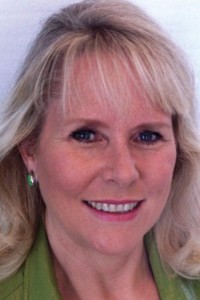Discourse, diversity and democracy
December 29, 2015
OPINION By DEBBIE PETERSON
As the target of criticism over my role on the steering committee of the SLO County chapter of the American Civil Liberties Union (a position also held by the fearless publisher of CalCoast News, Karen Velie), I would like to set the record straight.
Recently, the SLO League of Women Voters presented a two year study on civil discourse to our SLO County Board of Supervisors, responding to a very real problem in our county and the reason that I joined the steering committee of the ACLU. During ten years of public service as an appointee and elected representative, I have undertaken to make government meetings more accessible, more easily understood, more transparent, and less intimidating to members of the public.
My desire is for more public involvement in local government. I have been disappointed by the number of times elected officials override the advice of the citizen advisory committees they appoint. I have observed that elected representatives, government staff and even government attorneys come to the job with a variety of skills, abilities and experience, and often with very little understanding of their roles and responsibilities as board members, or the rights and responsibilities of the citizens they represent.
We embrace living in a democracy, but often the practice and politics of governance by our “representatives” is not in line with the democratic principles we espouse. Too often elected officials and staff treat legislation that protects diversity of opinion, and the public’s right to participate as a constraint and hindrance, rather than the freedom that empowers us to work together for the common good. Attorneys for government agencies often aggressively pursue litigation as if they are representing a business enterprise, rather than fulfilling their roles as guardians of transparency and freedom of speech—the laws established for the purpose of protecting we the people.
I have witnessed, and have been the victim of board members, attorneys and staff of public agencies who maneuver and manipulate to silence those who hold differing viewpoints, and stack boards with cronies, rather than listening to public input and considering how to best serve the community.
Too often, rather than seeking first to understand, officials ridicule and denigrate members of the public from the dais, or seek to silence fellow board members with other views. I have seen elected representatives publicly threaten to harm the livelihood and reputation of employees, colleagues, citizens and organizations who ask questions. These behaviors tear down democracy, stifle debate and foster corruption.
The free constitutionally guaranteed exchange of ideas is impaired. Many people feel there is no point in voting or speaking out because they feel they can’t make a difference, or they are afraid to risk their livelihoods and reputations by speaking up.
When we do not hold our public servants to a higher standard we send the message that it is OK to intimidate with threats. We allow members of the bully pulpit to pile on to disparage those who don’t cooperate with their agenda. We stand by as they become more and more skilled at pursuing their own best interest instead of ours.
By going along or keeping quiet we reward and perpetuate malfeasance.
My hope was and is that the ACLU can help, because it has legal experts and members who will take action to uphold the ideals that inspire our constitutional rights.
That does not mean that I agree with every action the ACLU has taken over the years. There are many actions that I profoundly disagree with. However, conservatives, liberals, and centrists can use the resources of our local ACLU chapter to sponsor training for elected officials to clarify their roles and responsibilities as board members and to suggest problem solving techniques and communication skills to improve interaction between board members, the public, and staff. We can educate the public in the right they have to participate in the governance of their communities.
We can insist that our elected officials comply with the Brown Act, First Amendments and the California Constitution. We can take action when government agencies and board members violate transparency and free speech rights.
In his April 17, 1961 speech to the press, President John F. Kennedy warned against government that filters information, where mistakes are buried, not headlined; dissenters are silenced, not praised; no expenditure is questioned, no rumor is printed, no secret is revealed. Find the full speech here.
“… no official of my administration, whether his rank is high or low, civilian or military, should … stifle dissent, seek to cover up our mistakes or to withhold from the press and the public the facts they deserve to know. No president should fear public scrutiny of his program; for from that scrutiny comes understanding; and from that understanding comes support or opposition. And both are necessary….I not only could not stifle controversy … I welcome it. Without debate, without criticism, no administration and no country can succeed — and no republic can survive… government at all levels must meet its obligation to provide you with the fullest possible information outside the narrowest limits of national security…”
Let us resolve to ensure open and accessible government in our county, cities, and special districts. If the ACLU can help achieve this objective, let us applaud them. If it cannot, let us join other organizations which can.
Debbie Peterson was the mayor of Grover Beach from 2012 through 2014, a council member from 2008 through 2012 and a planning commissioner from 2004 through 2008. She is currently a candidate for the District 3 Supervisor seat currently held by Adam Hill.







The comments below represent the opinion of the writer and do not represent the views or policies of CalCoastNews.com. Please address the Policies, events and arguments, not the person. Constructive debate is good; mockery, taunting, and name calling is not. Comment Guidelines